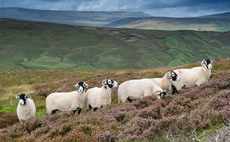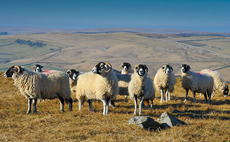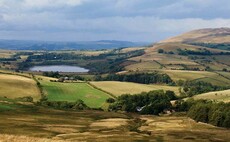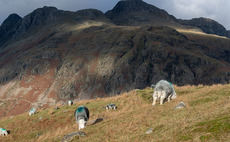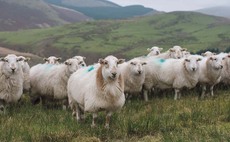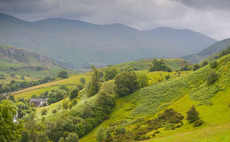uplands
Livestock
The drive to produce high quality stock lies at the heart of one Teesdale hill farm, where the Hutchinson family are overcoming the limitations of upland farming by taking a less is more approach.
Livestock
Tree planting and rewilding are driving an increase in dispersals of hill flocks, according to Longtown auctioneer John Walton.
Farm Business
Moorland payments for 2022 under Defra’s Sustainable Farming Incentive (SFI) have been increased by 60 per cent, following significant pressure from industry.
Farm Business
Industry leaders have hit back after Defra Secretary George Eustice suggested concerns about the future of the uplands were ‘unjustified’.
Farm Business
Industry leaders have hit back after Defra Secretary George Eustice suggested concerns about the future of the uplands were unjustified.
Farm Business
The NFU has urged the Government to set out a long-term vision for the future of upland farming in England, amid concerns the sector will face an ‘income crisis’ due to the loss of direct support.
Farm Business
MPs on the Environment, Food and Rural Affairs Select Committee have warned farmers are at risk of going bust during a ‘haphazard’ transition away from the Basic Payment Scheme (BPS).
Farm Business
The upland livestock sector in England is facing potential collapse unless Defras post-Brexit schemes replace the funding lost by direct support cuts, an industry leader has warned.
Farm Business
The upland livestock sector in England is facing potential ‘collapse’ unless Defra’s post-Brexit schemes replace the funding lost by direct support cuts, an industry leader has warned.
Farm Business
The Foundation for Common Land (FCL) has highlighted ongoing concerns about the viability of upland farmers and commoners during the transition away from direct support in England.

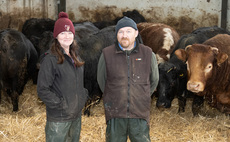
 21 April 2023
•
8 min read
21 April 2023
•
8 min read
